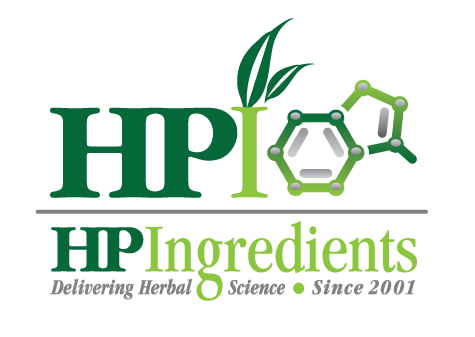Men – there’s yet another reason to mind your T’s: total testosterone and free testosterone.
Throughout the pandemic, physicians have reported that men with COVID-19 fare worse, on average, than women with the infection. One supposition was that testosterone is to blame, but that more of it was the cause.
However, a new study from Washington University School of Medicine in St. Louis has debunked that, as it suggests that, among men, low testosterone levels in the blood are linked to more severe disease. The study could not prove that low testosterone is a cause of severe COVID-19; low levels could simply serve as a marker of some other causal factors. Still, the researchers urge caution with ongoing clinical trials investigating hormonal therapies that block or lower testosterone or increase estrogen as a treatment for men with COVID-19.
Testosterone concentrations in men decline continuously by 1% to 2% per year starting after age 30 years. Additionally, obesity, metabolic syndrome, and many chronic illnesses, are associated with lower serum testosterone concentrations in men. Thus, the severity of COVID-19 illness seems to coincide with the nadir of lifetime testosterone, and the comorbidities that predispose individuals to increased COVID-19 severity are also associated with lower testosterone concentrations.
Studies among patients in the hospital, including those with COVID-19, have found that testosterone concentrations are lower in men requiring intensive care unit (ICU) admission or use of ventilators than in those with milder illness. Men with testosterone concentrations less than the reference range have chronically elevated concentrations of inflammatory mediators.16,17
In their study, the researchers recently found18 that the pattern of inflammation in individuals with COVID-19 differs from that seen in individuals with influenza. Patients with COVID-19, compared with those with influenza, have higher concentrations of a few cytokines (ie, interleukin 6 [IL-6] and interleukin 1 receptor antagonist [IL-1ra]), lower concentrations of most cytokines, and profound type I and type II interferon immunosuppression. We therefore conducted a detailed investigation into the association of testosterone with disease severity and inflammation in patients with COVID-19.
“During the pandemic, there has been a prevailing notion that testosterone is bad,” said senior author Abhinav Diwan, MD, a professor of medicine. “But we found the opposite in men. If a man had low testosterone when he first came to the hospital, his risk of having severe COVID-19 — meaning his risk of requiring intensive care or dying — was much higher compared with men who had more circulating testosterone. And if testosterone levels dropped further during hospitalization, the risk increased.”
The researchers measured several hormones in blood samples from 90 men and 62 women who presented symptoms of COVID-19 and who had confirmed cases of the illness. For the 143 patients who were admitted to the hospital, the researchers measured hormone levels again at days 3, 7, 14 and 28. In addition to testosterone, the investigators measured levels of estradiol, a form of estrogen produced by the body, and IGF-1, a growth hormone similar to insulin and plays a role in maintaining muscle mass.
Among women, the researchers found no correlation between levels of any hormone and disease severity. Among men, only testosterone levels were linked to COVID-19 severity. A blood testosterone level of 250 nanograms per deciliter or less is considered low testosterone in adult men. At hospital admission, men with severe COVID-19 had average testosterone levels of 53 nanograms per deciliter; men with less severe disease had average levels of 151 nanograms per deciliter. By day three, the average testosterone level of the most severely ill men was only 19 nanograms per deciliter.
According to the researchers, the lower the levels of testosterone, the more severe the disease. For example, those with the lowest levels of testosterone in the blood were at highest risk of going on a ventilator, needing intensive care or dying.
In addition, the researchers found that lower testosterone levels in men also correlated with higher levels of inflammation and an increase in the activation of genes that allow the body to carry out the functions of circulating sex hormones inside the cells. In other words, the body may be adapting to less testosterone circulating in the bloodstream by dialing up its ability to detect and use the hormone. The researchers don’t yet know the implications of this adaptation and are calling for more research.
“We are now investigating whether there is an association between sex hormones and cardiovascular outcomes in long COVID-19, when the symptoms linger over many months,” said Diwan, who is a cardiologist. “We also are interested in whether men recovering from COVID-19, including those with long COVID-19, may benefit from testosterone therapy. This therapy has been used in men with low levels of sex hormones, so it may be worth investigating whether a similar approach can help male COVID-19 survivors with their rehabilitation.”
The dietary supplement LJ100® Tongkat Ali (aka Eurycoma longifolia) is proven by research to be safe for men to naturally encourage endogenous production of testosterone – meaning, it helps the body to create more.
LJ100® is patented. The patent (dated November 7, 2006, number 7.132,117 [US] and WO 02/17946 A1 [word wide]) is for the “Bioactive Eurypeptides isolated in Tongkat Ali that is proven to be the active compounds effective for treatment of sexual dysfunction, male infertility, and increased testosterone.” The patent describes 16 claims ranging from composition and how such aqueous extracts of Tongkat Ali positively increase androgen biosynthesis and influences reproductive capabilities in men.
LJ100® works by restoring normal testosterone levels by increasing the release rate of “free” testosterone from its binding hormone, sex-hormone-binding-globulin (SHBG). Note that LJ100® is not a testosterone booster (e.g., anabolic steroid). LJ100® encourages favorable anabolic balance.
With over 15 published human clinical studies showing that LJ100® helps men generate their own testosterone levels – and the health benefits of higher self-generated testosterone, LJ100® in tandem with healthy habits can help men enjoy solid well-being.


